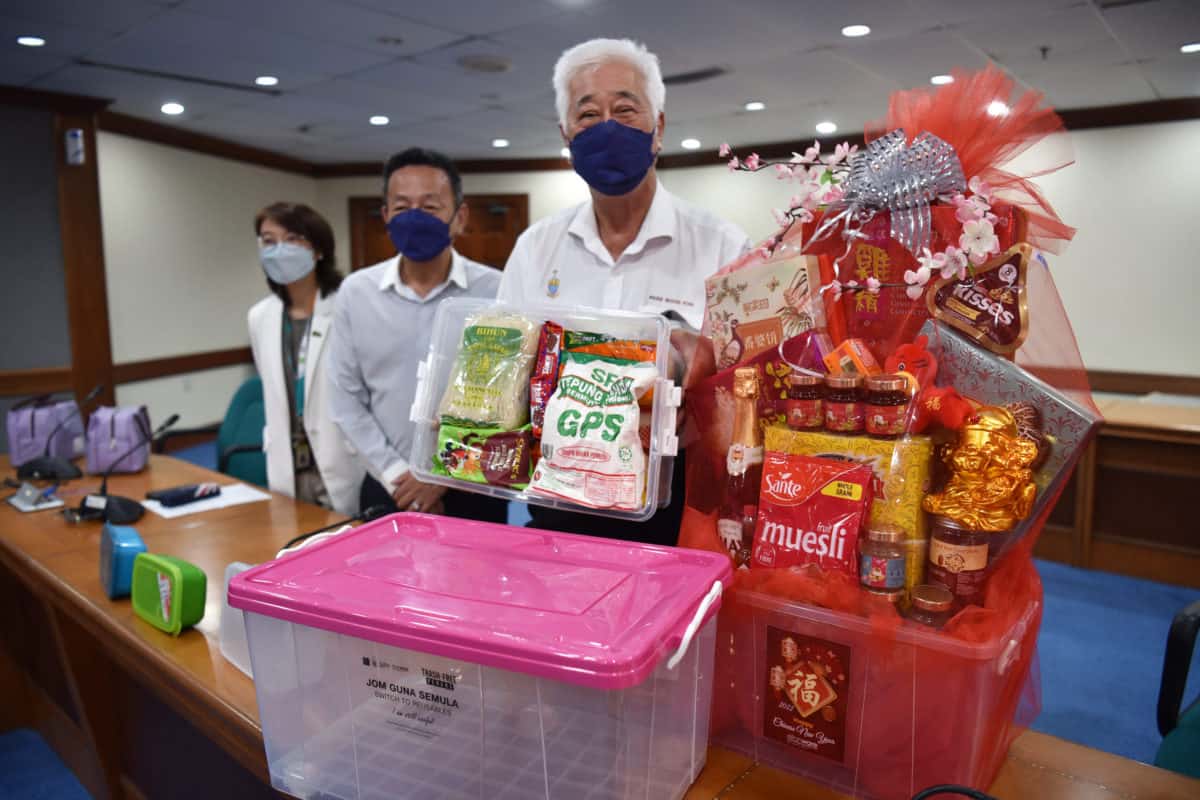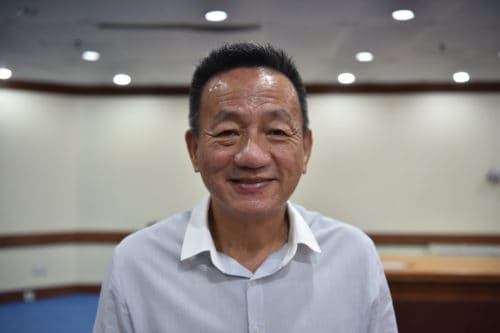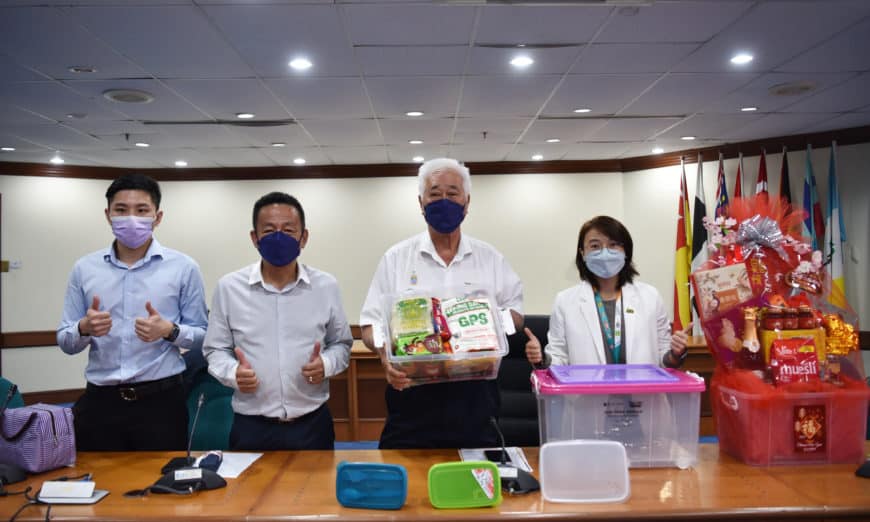AS the Year of the Tiger is about to roar in, traditional hampers may make perfect gifts for our loved ones, friends or clients during this Chinese New Year celebration.
But this year, the Penang government, through the Penang Green Council (PGC), is starting a campaign to encourage the public to put the gift items into recyclable plastic containers to cut down on one-time use plastics.
State Welfare and Environment Committee chairman Phee Boon Poh said it is a Chinese tradition to convey their best wishes or as a mark of respect and gratefulness by giving hampers to one another during the Chinese New Year and also to give hampers to those people who are less fortunate.

“But you will find that there are a lot of one-time use plastics in such hampers. And the cost itself is also very expensive, 15% of the hamper cost goes to packaging.
“That is the reason why I just like to let the supermarkets, hypermarkets and the general public know that 40% or 161 million tonnes of plastic produced was from packaging in 2018 according to one report.
“Supermarkets may say it is a tradition for them to pack the hampers the way they have been doing, but we are now in a new normal. By cutting down on single-use plastics, this will help our environment.
“Using plastic containers for the gift items will be more economical as they can be reused and reused,” Phee told a press conference on a ‘Greener Hampers this Festive Season’.
He continued: “We launch this campaign for 2022, saying that do not go for old packaging. In fact, we are 10 years late. In many of our workshops with Japan, China and Taiwan, we have held discussions on this issue – to cut down on packaging materials.
“Even though if we do not get 20% (success rate), as long as we can get the message across, surely the people will definitely accept.
“Last time when we started the ‘Say No to Plastic Bag Day’ on July 1, 2009, a lot of people did not want to accept it. They started to scold us. Now, the whole of Penang, 97%, accepted this policy.
“Why? They know that it is good.
“As Penangites, we should be very proud. When we introduced it, there were so many people who condemned us. At the end, the whole nation, including the Federal Government, is imposing all this throughout Malaysia.”
Also present were PGT general manager Josephine Tan, Ee-Lian Enterprise managing director Teoh Han Chuan and his personal assistant Tan Ming Zun.

Phee thanked Teoh for also contributing plastic containers to Mutiara Food Bank during the movement control order so that food could be stacked up nicely for distribution to the needy.
Teoh said they were delighted to help the state government in its drive to make Penang a cleaner, healthier and greener state.
Tan said PGC has been actively encouraging the public to reduce the use of single-use plastics, like straws, to protect the environment.

She said that according to a public survey conducted in 2018, 48.8% of the respondents indicated that they disposed single-use plastic items into rubbish bins after use instead of recycling it.
On the SEA circular project and MOOC report (2020), Tan said the local councils of Penang, Penang Island City Council (MBPP) and Seberang Perai City Council (MBSP), have reported that approximately 22.79% and 14% of plastic waste have been generated on the island and mainland respectively.
That year, plastic waste ranked second largest behind food waste. Plastic waste, said Tan, was the fourth largest waste collected by the councils before the MCO began but during the MCO, plastic waste spiked as a result of more home deliveries.
Story by K.H. Ong
Pix by Darwina Mohd Daud

